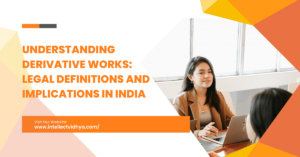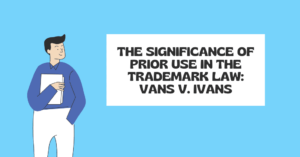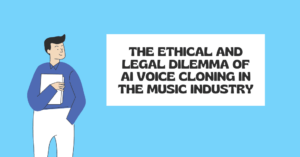Patents are most efficiently given to innovations that are brand-new, practical, and non-obvious. Every pending patent application is subject to an examination by the patent office to determine whether the stated invention is novel and not obvious in light of prior art.
What is the purpose of a Patent Search?
By employing the literature already existing in the same field of invention, the patent search enables one to comprehend the flaw or depth of the existing invention.
The inventor can improve the finding or come up with new ideas to make it patentable by studying the prior art literature because the patent search will help reveal similar patented inventions (prior arts).
There are various sorts of patent searches, including searches for patentability, invalidity, and freedom-to-operate (FTO). Let’s use a patentability search as an example for further clarification.
Before filing, an inventor conducts a patentability search to determine whether the invention is novel and not immediately obvious. All public disclosures made before the filing date of a patent application, including US patents and applications, patents and applications from other countries, manufactured products, or previously rendered services, are considered prior art to evaluate if an invention is both novel and original.
Your patent agent or lawyer should be knowledgeable with the prior art when preparing the claims for your invention. A search for patentability must be done in order to determine whether patent rights can be pursued. During the search investigation, it is possible to assess the inventive potential and identify any claims that are not infringing upon existing patents or previous art.
Important considerations for a patent search include:
- It is important to remember that while applying for a patent search, the applicant must fully describe their innovation.
- The patent expert should use all possible keywords that are derived from the invention, so that all relevant patents are fetched, and we do not miss on a single prior art.
- The purpose of the patent search should be clear and well described so that the obtained information can be meaningfully categorized and analysed.
For example:
For a ‘mobile phone’, an expert searcher will search for terms ‘mobile phone’, ‘cell phone’, ‘cellular phone’, ‘hand phone’, ‘portable telecommunication device’, ‘portable electronic device’, ‘handheld communication device’, ‘handheld electronic device’, and their plurals such as ‘mobile phones’, etc. in a combination of Patent Title, Abstract, Claims, and Full Specification. All of these terms/keywords form an exhaustive type of search query, which means we have used all possible variations for ‘mobile phone’.
For the same idea a less, experienced searcher can perform a patent search broadly, they might search with only ‘electronic device’ in title, abstract or ‘mobile phone’ in full text, which will lead to a non-analyzable number of results and cannot be possibly analyzed to find the relevant patents.
Fallibility of search performed by non-expert
Many innovators have shown to be experts at conducting their own patent searches. It is possible to search using:
- US Patent Office website
- Espacenet
- Google Patents
- FreePatentsOnline.com and a lot of other regional and free databases
Analysis of the prior art after a search can be difficult since the inventor may believe that the innovation cannot be protected against prior art and fail to see a key point of differentiation.
Furthermore, free search engines like Google Patent Search are not sophisticated search engines, and an inventor may occasionally overlook significant prior art if they do not have access to premium patent databases.
A non-expert may not do a thorough enough or high-quality search, which can produce misleading results. The process of filing an application for a patent may begin once inventors begin to believe their idea qualifies. Therefore, a thorough search must be conducted before submitting an application to the patent office.
Benefits of a professional search
The following topics must be covered for comprehensive patent searches:
- Knowledge of inventions, including their technical terms and synonyms.
- Searches using keywords and their combinations.
- Use of US classes, F-Terms, FI, Locarno classifications, International patent classification (IPC), Cooperative patent classification (CPC), and International patent classification (IPC) in search strings.
- There are a lot of Top Assignee based searches in that technical area.
(i). Author/Inventor based search includes many additional strategies and has the most literature published in the field.
These methods demand for knowledge in the field of searching as well as experience. An expert inventor’s experience can be used to gain a clear understanding of where the invention stands.
A patent specialist can assist in structuring the patent application to lessen the likelihood that it will be rejected. They can apply their knowledge to distinguish the innovation from the prior art and draw attention to its innovative features. saves the creator a great deal of time and money.










